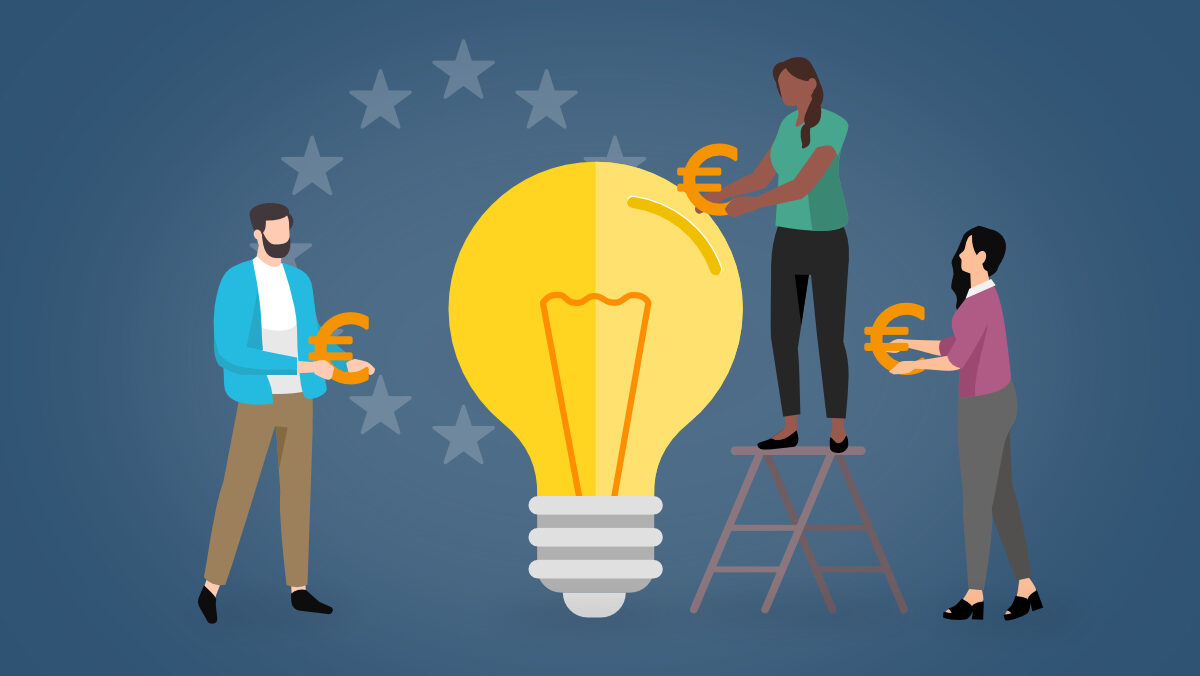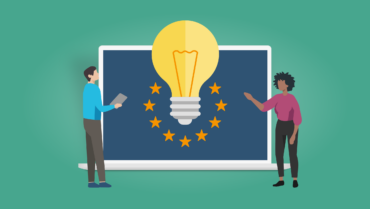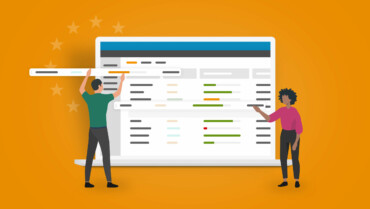As the European Union endeavours to stimulate innovation, foster economic growth, and address the pressing challenges arising from the coronavirus pandemic while propelling the transition towards a more modern and sustainable Europe, a range of EU funding avenues has been established under the 2021-2027 Multiannual Financial Framework and NextGenerationEU. Within these strategic frameworks, significant emphasis is placed on EU projects that aim to harness technology and innovation to build resilient infrastructures, promote green initiatives, and enhance digital capabilities across member states.
Funding opportunities financed by the 2021-2027 Multiannual Financial Framework and NextGenerationEU
The EU’s long-term budget for 2021-2027, along with the NextGenerationEU temporary recovery instrument, totals €2.018 trillion. Its objective is to alleviate the economic and social impact caused by the coronavirus pandemic and guide Europe towards a more modern and sustainable future.
Funding is allocated into six headings, or expenditure categories, within the EU budget. Each heading is designated for specific policy areas to be prioritised. Below, you can find an overview of various EU funding opportunities under each heading.
Heading 1: Single Market, Innovation and Digital
Heading 1 encompasses increased investment in crucial areas essential for future growth within the European Union, such as research and innovation, digital transformation, strategic infrastructure, and the single market. These programmes aim to address shared challenges such as decarbonisation and demographic shifts while simultaneously fostering the competitiveness of businesses, with a specific emphasis on supporting small and medium-sized enterprises.

Heading 2: Cohesion and Values
Heading 2 focuses on enhancing resilience and cohesion among EU Member States. It aims to diminish disparities within and between regions, countries, and Member States while fostering sustainable territorial development. Furthermore, investments in the green and digital transition, youth, health, and initiatives safeguarding EU values contribute to strengthening the EU's resilience against current and future challenges.

Heading 3: Natural Resources and Environment
Heading 3 drives sustainability by investing in sectors like agriculture, fisheries, climate action, and environmental protection. Programmes like the Common Agricultural Policy and the European Maritime, Fisheries, and Aquaculture Fund boost competitiveness. Other initiatives, such as the Programme for Environment and Climate Action (LIFE) and the Just Transition Fund, exclusively target environmental and climate objectives.

Heading 4: Migration & Border Management
Heading 4 aims to address issues associated with migration and the administration of the EU's external borders. Within the 2021–2027 extended budget, there is a heightened focus on reinforcing the EU's external borders to safeguard the asylum system. Member States are also allocated increased EU funds to enhance their capacity in managing migration into the EU.

Heading 5: Security & Defence
Heading 5 includes programmes aimed at improving the security and safety of European citizens, strengthening defence capacities, and providing tools to address security challenges. To protect its citizens effectively, Europe also needs to enhance strategic autonomy and streamline defence instruments.

Heading 6: Neighbourhood & the World
Heading 6 bolsters the EU's socio-economic influence in its neighbouring regions, developing countries, and globally, and encompasses aid for countries in the accession process to the EU. Additionally, this heading enables the EU to maintain and enhance its global role, solidifying its position as the world's foremost provider of development and humanitarian aid, in collaboration with its Member States.

Expert tips for potential applicants
The opportunities for EU funding are extensive and can significantly contribute to advancing the development and ultimately, success of your project. However, we recognise that given the wide array of programmes available, selecting the right programme, identifying its requirements, and navigating the application process may seem daunting.
But don't worry! Below, we provide some key tips that can assist you, whether you are a start-up/SME or an organisation seeking to form a consortium:
1. Narrow down EU funding programmes based on their goals and policies
Each EU funding programme has its own set of goals, objectives, and rules that vary from one another. Additionally, specific programmes may focus on areas under different calls or challenges, such as those under EIC Accelerator Challenges and EIC Pathfinder Challenge. Therefore, the first step is to narrow down and select programmes that align most closely with your project's goals and objectives. Finding the right match between an EU funding programme and your project is vital to increase the likelihood of obtaining funding.
The information shared in this article serves as a good starting point for an overview of the available funding programmes, and the website of the EU Commission has all the information you need regarding each programme.
2. Understand the basics of the programme
Once you have an idea of which programme you would like to apply for, understanding its basics is necessary. Each EU funding programme varies in terms of the type of funding and budget, the area or sector of focus, eligibility criteria, application requirements, the application process, and finally, the programme duration and timelines.
Having a clear picture of the basics of the funding programmes you could potentially apply for could help you narrow down further and evaluate which one best suit your needs.
3. Know the criteria for evaluation
Applications for funding programs typically undergo a rigorous evaluation process. It is crucial to dedicate time to thoroughly examine and understand the criteria for the specific EU funding call to which you intend to apply. Each program has a set of criteria with different weights, making it important to grasp them to determine what aspects carry more importance or priority in your project. This understanding allows you to strategically emphasise and prioritise key elements in your proposal, increasing the likelihood of meeting the evaluation criteria effectively.
4. Track project timelines and milestones
Project management, including tracking key milestones and deadlines, is essential for a successful funding application. This ensures that enough time is allocated for each step of the application process, and nothing is omitted from the proposal. Understanding the duration and timelines of the programme is also essential to ensure that the chosen EU funding programme aligns with your business plans. Meeting deadlines is particularly critical this year, as the deadlines for certain programmes are often months apart. Missing a deadline means waiting 3-4 months or until the next year, potentially presenting new challenges, calls, or rules that applicants must navigate.
5. Consult EU funding experts
Numerous consulting firms specialise in EU funding programmes and have experts who can help you navigate the complexities of any stage of the application process—whether it's selecting the right funding programme, writing the application, preparing for interviews, or managing the overall project. These consultants typically specialise in securing funding and possess valuable insights from their extensive work experience in the field. From the beginning, they can assess the viability of your project against the chosen funding programme.
To conclude, as the European Union endeavours to address contemporary challenges, stimulate innovation, and foster economic growth, there are a myriad of funding avenues that play a pivotal role in guiding Europe towards a more modern and sustainable future.
Prospective applicants can enhance their chances of funding success by narrowing down programmes based on goals, understanding programme basics, being familiar with evaluation criteria, and tracking project timelines. Seeking expert advice from specialised consultancy firms can provide additional support and guidance. Embarking on the complex journey of EU funding is not only challenging but also highly fulfilling, offering the potential to transform the trajectory of your company or project while contributing to the broader success of the EU’s overarching goals.
This article is authored by our partner Futuro Perfecto, a consultancy specialising in European funding programmes such as the EIC Accelerator, Horizon Europe calls, and Eureka Eurostars, among other EC programmes. They collaborate with enterprises involved in future and emerging technologies and provide a range of services, from defining the funding strategy to writing the funding proposal.




